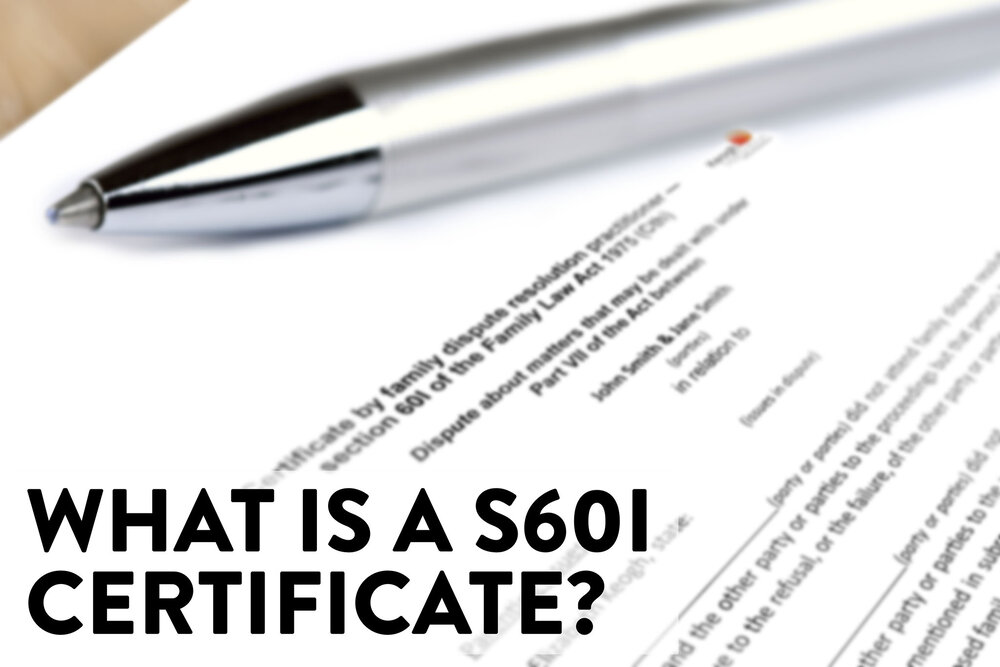When people first contact me they often say they have heard they need a ‘mediation certificate’ or a ‘section 60I certificate’, but they’re not really sure what it is.
The Family Law Act has a section (yes, you guessed it, s60I!) which says that a Judge can’t consider making orders about a child or children until there has been an attempt to reach an agreement through mediation. There are some exceptions, but generally speaking, if you want to make an application for Court orders, you will need a s60I certificate to prove you’ve tried to resolve your dispute through family dispute resolution (or mediation, as it is often called).
Not all mediators are authorised to issue s60I certificates. If you think you might need a certificate then it will be important to make sure that your mediator is a registered Family Dispute Resolution Practitioner. It is also important to be aware that s60I certificates only relate to mediation about children. If you are needing to make an application to Court about the financial aspects of a separation then you won’t need a s60I certificate – but you will need to show that you have genuinely tried to resolve your dispute – and mediation can be a great option to achieve this.
When can a s60I certificate be issued?
There are three different points in the family dispute resolution process when a certificate might be issued.
When only one person is willing to attend mediation
Sometimes one person is happy to attend mediation, but the other person refuses, or just doesn’t respond to a request to organise a mediation. When this happens a Family Dispute Resolution Practitioner can issue a s60I certificate that states that a mediation couldn’t be held because one of the participants ‘refused or failed to attend’. To be able to issue a ‘refused or failed to attend’ certificate the mediator will need to have personally invited the person to participate and given them time to consider the request.
There can be some adverse consequences for a person who ‘refuses or fails to attend’ so it is important to get legal advice if you have been invited to a mediation but are reluctant to attend. Advice about this is generally available, for free, from Legal Aid (even for people whose income is too high to receive other help from Legal Aid), from Women’s Legal Services, and from some private lawyers who provide short initial advice sessions for free.
When mediation can’t happen because it isn’t appropriate
Before holding a mediation the mediator has to gather information from each person to work out if mediation is appropriate. If it isn’t appropriate then the mediator must not run a mediation, but can issue a s60I certificate stating that no mediation was held because it wasn’t appropriate. The certificate won’t explain the reasons for this decision, and often times the mediator won’t be able to give either of you much explanation for their decision because it is based on confidential conversations they have had with each of you.
After a mediation
Sometimes people are able to resolve all the issues in dispute at a mediation. Other times there will be one or more issues that they have been unable to reach agreement about, even with the mediator’s help. When this is the case they can ask the mediator to issue a s60I certificate saying that they attended mediation.
How long do s60I certificates last?
A s60I certificate will always include information about when the last mediation session was held (or when the last attempt was made to organise a mediation). The certificate can be used to make an application to Court within 12 months of that date. If it has been longer than 12 months, then a fresh attempt at mediation will be required.
Do we need a s60I certificate to get Consent Orders?
Sometimes when people reach an agreement in relation to issues about their children they want to formalise that agreement by getting Consent Orders from the Court. If this is your situation you won’t need a s60I certificate.




